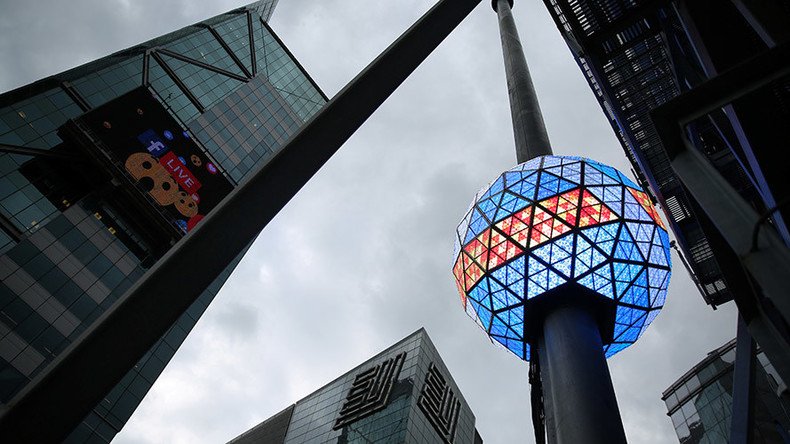2016 by the numbers: Gallup’s ‘top world findings’ on employment, US image and happiness

As 2016 comes to an end, it’s time to reflect on anything learned over the past year. Gallup has released a round-up of its World Polls on wellbeing, leadership and political confidence.
In its top findings of polls taken in 2015 and published in 2016, Gallup found some interesting worldwide trends. From the US maintaining its reputation as a strong power internationally to how youth unemployment in wealthy economies is related to struggles with health, they offer hints for where 2017 might take the world.
One thing that held true for most countries is a decreasing perceived freedom of the media. In 2015, only 61 percent of residents in 131 countries believe that their media have a lot of freedom. Freedom House, a watchdog organization for political freedom and human rights, attributed the decline of perceived freedom to “extreme political polarization in media outlets,” Gallup reported. This, despite access to media growing through the use of smartphones and wider internet coverage.
Mind-altering: WA teenagers’ attitudes toward marijuana shift after legalizationhttps://t.co/vfNBmOlhEtpic.twitter.com/AnjWCNAgWM
— RT America (@RT_America) December 28, 2016
During times of difficulty, some refer to the adage: “At least you’ve got your health.” Unfortunately, younger people who are unemployed in high income-economy countries may not even have that. Gallup found that 26 percent of unemployed young adults felt confident in their physical wellbeing, where 31 percent of employed young adults were physically thriving. The closest comparable number to the unemployed young adults was the 24 percent of employed adults aged 50 years and over who are physically thriving.
Even for those whose bodies haven’t failed them, the odds of finding or having an enjoyable job are slim. In a larger poll, Gallup found that 26 percent of the world’s adult population would say their job is good, but only 4 percent would call it great.
In North America, those prospects are somewhat less dismal. Forty-three percent of adults in North America have good jobs, but only 11 percent have a great job. This may not seem ideal, but it could be worse. In Asia, only 25 percent of adults have good jobs and 2 percent have great jobs.
Humans can stop #globalwarming & maintain ‘high quality of life’ – UK govt http://t.co/gauuDZHW07pic.twitter.com/Ww7XxhMICM
— RT (@RT_com) January 28, 2015
The US continued to be viewed as a strong nation among other major world powers. While President Barack Obama’s international approval ratings never returned to his 2009 high of 49 percent, the US maintained a steady 45 percent approval rating throughout his tenure.
Europe was not quite as lucky, as their leadership had a median approval rating of 39 percent internationally. Out of all the major global powers, Russia had the lowest approval rating of 24 percent.












